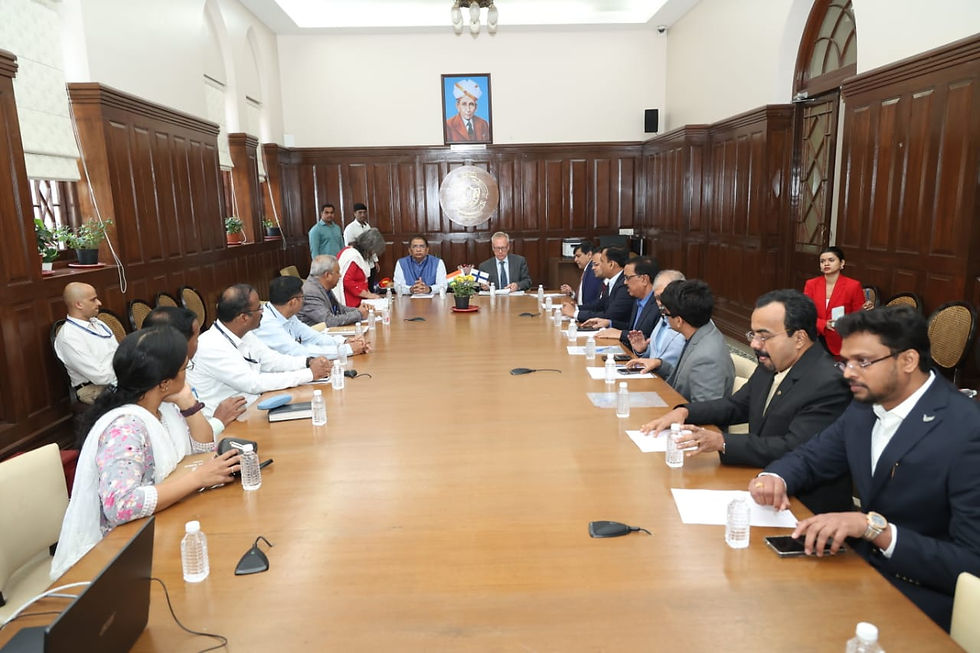
Trade Facilitation
Measures that simplify and expedite technical and legal processes for goods at the border are referred to as trade facilitation.
How Does Trade Facilitation Improve International Trade?
The modernisation, harmonisation, and simplification of international trade processes is referred to as trade facilitation. It includes all of the procedures, methods, and activities involved in gathering, displaying, sharing, and processing the data needed to move goods across international borders. The goal of trade facilitation is to increase the speed and efficiency of international trade by lowering the cost and complexity of the trade process. The idea of trade facilitation is examined in this article along with its elements, advantages for global trade, and difficulties it faces.
The goal of trade facilitation is to make the legal and administrative requirements for importing and exporting goods more straightforward. For the entire trade environment to be improved, governments and different trade agencies must work together. Through the improvement of supply chain reliability and the reduction of trade costs, effective trade facilitation can have a substantial impact on economic development.
Efficiency of Customs: streamlining customs processes to speed up product clearance and release.
Simplifying Regulations: minimising the number of rules and specifications pertaining to international trade.
Use of Technology:
Putting into practice cutting-edge information and communication technologies to enable the electronic sharing of trade-related data.
Integrity:
Providing traders with clear, easily accessible information about trade procedures.
Interagency Coordination: Improving coordination amongst different border agencies to cut down on duplication and speed up processing.
Global Standards:
Using international norms and procedures to make trade operations more predictable and consistent.
Efficiency of Customs: streamlining customs processes to speed up product clearance and release.
Simplifying Regulations: minimising the number of rules and specifications pertaining to international trade.
Use of Technology: Putting into practice cutting-edge information and communication technologies to enable the electronic sharing of trade-related data.
Integrity: Providing traders with clear, easily accessible information about trade procedures.
Interagency Coordination: Improving coordination amongst different border agencies to cut down on duplication and speed up processing.
Global Standards: Using international norms and procedures to make trade operations more predictable and consistent.
Importing and exporting goods takes less time and money when processes are streamlined.
Decreased Trade Costs and Times
Trade volumes and economic growth are generally increased when trade barriers are reduced and efficiency is improved.
Greater Trade Volume:
By drawing in foreign investment and increasing economic competitiveness, a more effective trade process enhances the business environment.
Better Business Environment
Accurate and timely customs duty and tax collection can result from efficient processes.
Increased Customs Revenue
Advantages of Facilitating Trade
Concerns Trade Facilitation Addresses
Trade procedures in many nations are intricate and bureaucratic, which can be expensive and time-consuming.
The intricacy of Trade Procedures
Inadequate coordination between different national agencies may cause delays and raise expenses for traders.
Inadequate Agency Coordination
Insufficient trade-related infrastructure can make it more difficult for goods to be moved efficiently.
Facilities Deficits
Disparities in national trade policies may constitute obstacles to seamless global commerce.
Different International Practices

International Trade Facilitation Initiatives
-
Trade Facilitation Agreement (TFA) of the World Trade Organisation (WTO): The TFA was adopted in 2014 with the goal of accelerating the flow, release, and clearance of goods internationally. It highlights steps for efficient collaboration between customs and other authorities on matters pertaining to customs compliance and trade facilitation
-
Bilateral and Regional Agreements: A number of nations and regions have created bilateral and regional trade agreements with elements intended to promote trade
-
Investing in Infrastructure: Building strong trade infrastructure, such as ports, roads, and digital technologies, to facilitate efficient trade processes.
-
Training and Capacity Building: Increasing the skills and capabilities of trade officials to ensure compliance with new procedures and technologies.
-
Public-Private Partnerships: Promoting collaboration between governments and the private sector to develop and improve trade facilitation measures.
-
Continuous Monitoring and Evaluation: Regularly assessing the effectiveness of trade facilitation measures and making necessary adjustments to address new challenges and opportunities.

Facilitating trading is critical to increasing global trade by simplifying, modernising, and harmonising the export and import processes. By lowering trade costs and delays, it not only improves business competitiveness but also promotes overall economic growth. As globalisation accelerates, effective trade facilitation will remain critical to promoting sustainable and inclusive growth in the global economy.


